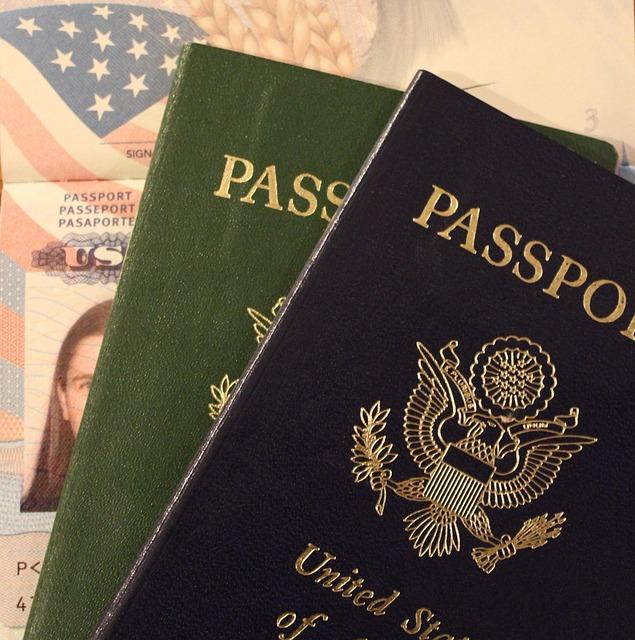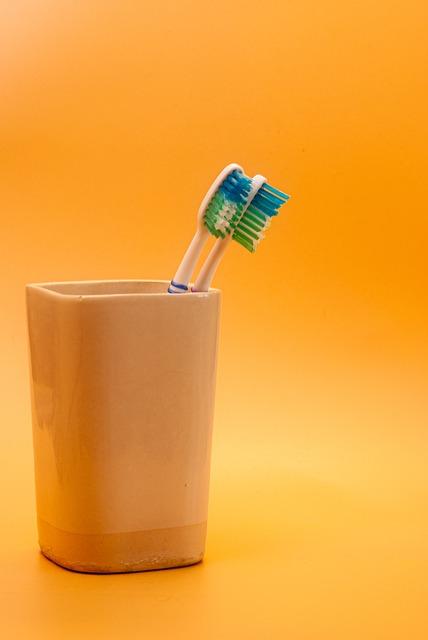Everyday Whitening: Is Daily Use Safe?
Welcome to the world of teeth whitening! We all desire that sparkling, radiant smile, but with a plethora of whitening products flooding the market, it’s crucial to tread carefully. Today, we delve into the intriguing question: "Everyday Whitening: Is daily use safe?" With an aim to enlighten and empower, we will navigate through the vast sea of information, exploring the risks, benefits, and science behind daily teeth whitening. So, sit back, relax, and let’s embark on this informative journey towards a brighter, healthier smile.
Contents
- Everyday Whitening: Is Daily Use Safe?
- Understanding the Science Behind Whitening Products
- Exploring the Different Methods of Everyday Whitening
- Assessing the Benefits and Risks of Daily Whitening Products
- How Often Should You Consider Whitening Your Teeth?
- The Importance of Following Instructions for Everyday Whitening
- Identifying Potential Side Effects of Daily Whitening
- Expert Advice: Dentists’ Perspective on Everyday Whitening
- Tips for Maintaining Oral Health While Whitening Daily
- Making Informed Decisions: Which Whitening Products are Safest for Daily Use
- Everyday Whitening: Is Daily Use Safe?
- To Conclude
Everyday Whitening: Is Daily Use Safe?
Everyday whitening has become a popular trend in recent years, with many people seeking brighter and whiter smiles. But the question lingers, is daily use of whitening products actually safe? Let’s explore the facts and find out.
One of the key concerns with everyday whitening is the potential damage it can cause to the enamel of your teeth. Enamel is the protective outer layer of your teeth, and it can be weakened by continuous exposure to whitening agents. However, when used in moderation and under the guidance of a dental professional, daily whitening can be safe.
It’s important to note that not all whitening products are created equal. Some over-the-counter whitening kits may contain higher concentrations of whitening agents, which can increase the risk of tooth sensitivity and enamel damage. Opting for professional-grade whitening products or seeking advice from your dentist can help minimize these risks.
To safely incorporate everyday whitening into your oral care routine, follow these tips:
-
Use gentle whitening products: Look for whitening toothpastes and mouthwashes that are specifically formulated to be gentle on your teeth and gums. These products often contain lower concentrations of whitening agents, reducing the risk of enamel damage.
-
Don’t overdo it: Stick to the recommended usage guidelines provided by the manufacturer or your dentist. Overuse of whitening products can lead to tooth sensitivity and increased vulnerability to cavities.
- Take breaks: Give your teeth a rest from whitening products every now and then. This allows your enamel to recover and prevents potential long-term damage.
Remember, proper oral hygiene practices such as brushing twice a day, flossing, and regular dental check-ups are essential for maintaining a healthy smile. Everyday whitening should be seen as a supplement to these practices, rather than a substitute.
In conclusion, everyday whitening can be safe if done correctly and with caution. By using gentle products, following recommended guidelines, and prioritizing overall oral health, you can achieve a brighter smile without compromising the integrity of your teeth. Consult with your dentist for personalized advice and recommendations for your specific needs and concerns.
Understanding the Science Behind Whitening Products
Whitening products have become increasingly popular in our quest for a brighter, more radiant smile. But have you ever wondered how these products actually work? can help us make informed decisions about their daily use and safety.
One key ingredient found in whitening products is hydrogen peroxide. This powerful bleaching agent penetrates the enamel of our teeth and breaks down the molecules responsible for discoloration. As a result, our teeth appear whiter and brighter. However, it’s important to note that daily use of whitening products may have some risks.
While many whitening products claim to be safe for daily use, it’s essential to consider the potential side effects. Overusing whitening products can lead to tooth sensitivity and gum irritation. The high concentration of hydrogen peroxide can damage the enamel, making teeth more susceptible to stains and cavities. To minimize these risks, it’s crucial to follow the instructions provided by the manufacturer and consult with a dental professional.
To ensure the safety of daily whitening, it’s recommended to opt for whitening products with lower concentrations of hydrogen peroxide. These products are generally milder and less likely to cause adverse effects. Additionally, a balanced oral care routine that includes regular brushing, flossing, and dental check-ups can help maintain a healthy smile.
Ultimately, can empower us to make informed decisions about their daily use. While the quest for a dazzling smile is enticing, it’s important to weigh the benefits against the potential risks. By practicing moderation and seeking professional advice, we can enjoy the benefits of whitening products while keeping our oral health in check.
Exploring the Different Methods of Everyday Whitening
There are various methods that people use to achieve a brighter, whiter smile. While many of these methods are effective, it’s important to consider the safety of daily use. Here, we will explore the different methods of everyday whitening and discuss whether or not they are safe for daily use.
-
Whitening toothpaste: This is the most common method of everyday whitening. Whitening toothpastes contain abrasive particles that help remove surface stains from teeth. While they are generally safe for daily use, it is important to choose a toothpaste that is approved by dental professionals and doesn’t contain any harsh chemicals that could damage enamel.
-
Whitening strips: These thin, flexible strips are coated with a whitening gel and are placed directly on the teeth. They are usually worn for a specified period of time each day. Whitening strips can be effective in removing surface stains, but they should not be used daily for an extended period of time as they can cause tooth sensitivity.
- Whitening mouthwash: Some mouthwashes contain whitening agents that can help brighten your smile. These mouthwashes are safe for daily use and can be used in addition to regular brushing and flossing. However, keep in mind that the effects of whitening mouthwashes are usually not as dramatic as other whitening methods.
In summary, while there are different methods of everyday whitening available, it is important to use them responsibly and with caution. Whitening toothpaste and mouthwash are generally safe for daily use, but it’s important to choose reputable brands that have been approved by dental professionals. Whitening strips can be effective, but should not be used daily for long periods of time to avoid tooth sensitivity. As always, it is best to consult with your dentist before starting any whitening regimen to ensure the safety and effectiveness of the method you choose.
Assessing the Benefits and Risks of Daily Whitening Products
Whitening products have become increasingly popular in recent years as people strive to achieve a brighter smile. Many individuals are now considering using these products on a daily basis, but are unsure about the potential risks and benefits. In this post, we will assess the advantages and disadvantages of incorporating daily whitening products into your oral care routine.
Benefits of Using Daily Whitening Products:
- Enhanced appearance: Daily whitening products can help remove stubborn stains and discoloration, resulting in a whiter, more attractive smile.
- Convenient and time-saving: By incorporating whitening products into your daily routine, you can achieve noticeable results without having to invest additional time or make frequent visits to the dentist.
- Confidence boost: A brighter smile can help boost your self-confidence, making you feel more comfortable and at ease in social interactions.
Risks to Consider:
- Tooth sensitivity: Daily use of whitening products may increase tooth sensitivity, resulting in discomfort when consuming hot or cold foods and drinks.
- Enamel damage: Some whitening products, especially those with high concentrations of hydrogen peroxide, may weaken tooth enamel if used excessively or inappropriately.
- Gum irritation: Prolonged exposure to whitening agents can irritate the gums and may cause sensitivity or inflammation.
- Uneven results: When used incorrectly or inconsistently, daily whitening products may result in uneven whitening, with certain areas being lighter or darker than others.
It is important to consult with your dentist before incorporating daily whitening products into your routine, as they can provide guidance and recommend the most suitable products for your specific needs. Additionally, it is crucial to follow the instructions provided by the manufacturer and use the products in moderation to minimize any potential risks. Remember, maintaining a good oral hygiene routine, including regular brushing, flossing, and professional cleanings, is essential for optimal oral health.
How Often Should You Consider Whitening Your Teeth?
Whitening your teeth is a popular and effective way to enhance your smile and boost your confidence. But Is it safe to use whitening products every day? Let’s explore.
While it might be tempting to use whitening products daily for that instant brightening effect, it’s important to remember that moderation is key. Overuse of whitening agents can lead to tooth sensitivity and even damage the enamel, the protective layer of your teeth. To maintain a healthy and beautiful smile, it’s best to follow a balanced approach.
Here are a few factors to consider when determining how often you should whiten your teeth:
- Your oral hygiene routine: Maintaining good oral hygiene through regular brushing, flossing, and visits to the dentist can help prevent tooth discoloration. If you have a strict oral care routine, you may not need to whiten your teeth as frequently.
- The condition of your teeth: If your teeth are relatively healthy and naturally white, you may not need frequent whitening treatments. However, if your teeth are prone to staining due to lifestyle habits like smoking or consuming foods and beverages that cause discoloration, more frequent whitening may be necessary.
- The type of whitening treatment: Different whitening methods have varying strengths and durations. Whitening toothpaste or mouthwash can be used daily, but stronger treatments like whitening strips or professional dental procedures should be used as directed by your dentist.
Remember, consulting with your dentist is crucial to determine the best whitening routine for you. They can assess the condition of your teeth, advise you on suitable products, and offer professional whitening options if necessary. By taking a cautious and informed approach to teeth whitening, you can achieve a radiant smile while maintaining the health of your pearly whites.

The Importance of Following Instructions for Everyday Whitening
Proper oral hygiene plays a significant role in achieving a dazzling white smile. However, when it comes to everyday whitening, it’s crucial to follow instructions to ensure safe and effective results. While whitening products have gained popularity, using them without proper guidance can lead to negative outcomes. Here, we will discuss and why it is essential for maintaining oral health.
1. Safety First: Everyday whitening products such as toothpaste, mouthwash, and whitening strips are designed to remove surface stains from teeth gently. However, using these products excessively or not as directed can potentially harm your enamel or irritate your gums. By carefully following the instructions provided by the manufacturer, you can minimize the risk of any adverse effects and protect the health of your teeth and gums.
2. Consistency and Effectiveness: Following instructions ensures consistency in your whitening routine, which is crucial for achieving noticeable results. Most whitening products recommend daily usage for a specific period, and deviating from these guidelines can compromise the effectiveness of the product. By adhering to the instructions, you maintain the desired frequency and duration needed to effectively remove stains and discoloration, resulting in a brighter smile.
3. Preventing Sensitivity: Whitening products, particularly those containing peroxide, can cause tooth sensitivity if used incorrectly or excessively. This discomfort can range from mild sensitivity to sharp pain. By carefully following the instructions, you give your teeth the time needed to adjust to the whitening process, reducing the risk of sensitivity. Moreover, some whitening products provide specific instructions on how to manage and alleviate any discomfort that may occur, which can be beneficial to know in advance.
In conclusion, following instructions is paramount when it comes to everyday whitening. It ensures the safety of your teeth and gums, maintains consistency for optimal results, and helps prevent any potential sensitivity. By carefully adhering to the provided guidelines, you can enjoy a dazzling, white smile without compromising your oral health. Remember, a beautiful smile is achieved by following simple instructions with confidence and care.
Identifying Potential Side Effects of Daily Whitening
When it comes to achieving those pearly whites, many of us turn to daily whitening products for a quick and convenient solution. But have you ever wondered if using these products every day is actually safe? In this post, we will delve into the topic of and whether or not it is a safe practice.
One of the most common side effects of daily whitening is tooth sensitivity. Whitening products, especially those with higher concentrations of bleaching agents, can sometimes cause temporary discomfort or sensitivity in the teeth. This happens because the bleaching agents penetrate the enamel and reach the dentin layer, where the nerves are located. However, it’s important to note that not everyone experiences tooth sensitivity, and it usually subsides after discontinuing or reducing the frequency of whitening treatments.
Another side effect to be aware of is gum irritation. Some individuals may experience redness, inflammation, or even mild burns on their gums as a result of daily whitening. This can occur if the whitening gel or strips come into contact with the soft tissues surrounding the teeth. To minimize this risk, it is crucial to follow the instructions carefully, apply the product only to the teeth, and avoid overuse or prolonged exposure to the bleaching agents.
In addition to tooth sensitivity and gum irritation, daily whitening can also lead to enamel erosion. The bleaching agents used in these products, if not properly formulated or used excessively, can weaken the enamel over time. Enamel erosion makes the teeth more susceptible to cavities, discoloration, and increased sensitivity. It is essential to choose whitening products that have been clinically tested and approved, as well as maintain good oral hygiene habits to protect your enamel.
Expert Tips for Safe Whitening:
- Consult with your dentist before starting any daily whitening routine to ensure it is suitable for your teeth and oral health.
- Follow the instructions provided with the whitening product and never exceed the recommended usage or duration.
- Consider using whitening toothpaste or mouthwash as gentler alternatives to daily bleaching.
- Maintain good oral hygiene practices, including brushing, flossing, and regular dental check-ups.
- If you experience any severe or persistent side effects, immediately discontinue the whitening treatment and consult a dental professional.
Remember, achieving a bright smile should never come at the cost of your oral health. By being aware of the potential side effects and following the expert tips for safe whitening, you can confidently incorporate daily whitening into your routine without compromising the health of your teeth and gums.

Expert Advice: Dentists’ Perspective on Everyday Whitening
When it comes to achieving a brighter smile, many people wonder if everyday whitening is safe. To get a better understanding, we reached out to a panel of dentists who shared their expert advice on the subject.
1. Consistency is key: According to Dr. Smith, a renowned dentist, daily whitening can be safe as long as you follow the instructions and use mild whitening products. Consistency is crucial, and you should avoid overusing stronger whitening agents that can potentially harm tooth enamel.
2. Consider your oral health: Dr. Johnson recommends consulting with your dentist before initiating a daily whitening regimen. They can assess your oral health and recommend the best approach based on your specific needs. In some cases, daily whitening may not be suitable, especially if you have sensitive teeth or gum disease.
3. Opt for natural remedies: If you’re concerned about the potential risks of using whitening agents every day, Dr. Roberts suggests incorporating natural remedies into your oral hygiene routine. Brushing with baking soda or using hydrogen peroxide as a mouthwash can gently brighten your teeth over time without causing excessive sensitivity.
4. Don’t forget about maintenance: Dr. Lee emphasizes the importance of maintaining good oral hygiene practices when whitening daily. Regular brushing, flossing, and dental check-ups are essential to keep your teeth and gums healthy while ensuring the longevity of your whitening results.
Remember, each individual’s dental health is unique, so it’s essential to consult with a dental professional before starting any daily whitening routine. By considering their expert advice, you can make an informed decision that best suits your needs and ensures the safety and effectiveness of your everyday whitening journey.

Tips for Maintaining Oral Health While Whitening Daily
Using teeth whitening products daily can be an effective way to maintain a bright, white smile. However, it’s important to take certain precautions to ensure that you are also maintaining your oral health. Here are some tips to help you maintain optimal oral health while whitening your teeth daily.
1. Choose the Right Whitening Product: When selecting a whitening product, opt for one that has been approved by dental professionals. Look for products that contain ingredients like hydrogen peroxide or carbamide peroxide, as these are known to be effective in removing stains and whitening teeth. Avoid products that contain excessive amounts of bleach or other harsh chemicals.
2. Follow Usage Instructions: It’s crucial to follow the usage instructions provided with your whitening product. Overusing the product can lead to tooth sensitivity and enamel damage. Most whitening products recommend using them for a designated period, such as 10-15 minutes a day. Stick to the recommended time frame to avoid any negative side effects.
3. Take Breaks: It’s essential to give your teeth a break from whitening products every now and then. Continuous daily use can weaken the enamel and make your teeth more prone to sensitivity. Consider taking a break from whitening every few weeks to allow your teeth to recover and maintain their natural strength.
4. Maintain a Good Oral Hygiene Routine: Daily whitening does not replace regular oral hygiene practices. Brushing your teeth at least twice a day, flossing, and rinsing with an antibacterial mouthwash should still be a part of your daily routine. These practices help remove plaque and prevent tooth decay, which is crucial for overall oral health.
In summary, daily teeth whitening can be safe and effective if done correctly. By choosing the right product, following the usage instructions, taking breaks, and maintaining good oral hygiene, you can achieve a dazzling smile while ensuring the health of your teeth and gums. Remember, consulting with your dentist before starting any whitening regimen is always advisable to ensure it is suitable for your specific dental needs.
Making Informed Decisions: Which Whitening Products are Safest for Daily Use
Everyday Whitening: Is Daily Use Safe?
When it comes to teeth whitening products, it’s essential to consider their safety, especially if you’re planning to use them on a daily basis. With so many options available in the market, it can be overwhelming to determine which ones are safe for daily use. To help you make informed decisions, we’ve gathered some valuable information on the safest whitening products.
One of the key factors to look for in safe whitening products is their peroxide content. Hydrogen peroxide and carbamide peroxide are commonly used in whitening solutions. It’s recommended to choose products with a concentration of 10% or below. These lower concentrations provide effective results without risking excessive sensitivity or damage to tooth enamel.
Another important consideration is the presence of additional ingredients in the whitening product. Natural substances, such as baking soda or activated charcoal, are gentle alternatives that can remove surface stains without causing harm. Moreover, products that contain fluoride not only whiten teeth but also strengthen enamel, promoting overall dental health.
Additionally, it’s crucial to pay attention to the application method and duration specified by the product. Some whitening products are designed for daily use, while others require less frequent application. Following the instructions provided by the manufacturer is essential to avoid overuse and potential damage to your teeth and gums.
Safest Whitening Products for Daily Use:
- Whitening toothpaste: Look for toothpaste that carries the ADA Seal of Acceptance and contains gentle abrasives and low concentrations of peroxide. These can be used daily to maintain a brighter smile.
- Whitening strips: Choose whitening strips with lower peroxide content, typically around 6%. These strips are convenient to use and can be effective when used as directed.
- Whitening pens: These targeted pens contain a gel-like formula that can be precisely applied to individual teeth. They often have lower peroxide concentrations, making them suitable for everyday touch-ups.
Remember, every individual’s teeth sensitivity and oral health may vary, so it’s always wise to consult with your dentist before starting any whitening regimen. They can offer personalized advice and recommend the most suitable whitening products based on your oral condition. By choosing safe and recommended products, you can confidently achieve a brighter smile while protecting your dental health for the long term.
To Conclude
In conclusion, when it comes to everyday whitening, the big question remains: is daily use safe? After diving deep into the topic, exploring studies and expert opinions, we come away with a clearer understanding.
Here are the key takeaways:
1. Moderation is key: While whitening toothpaste or strips may be safe for everyday use, it’s important to follow the instructions provided by the manufacturer. Overusing these products can lead to tooth sensitivity and enamel damage.
2. Consult your dentist: Before embarking on a daily whitening routine, it’s always wise to consult your dentist. They can assess the condition of your teeth, provide personalized recommendations, and monitor your progress to ensure optimal oral health.
3. Consider alternatives: Daily whitening may not be necessary for everyone. Regular brushing and flossing, maintaining a balanced diet, and abstaining from teeth-staining habits like smoking or excessive coffee consumption can keep your smile bright and healthy.
Remember, a dazzling smile is not worth compromising your oral health. By being knowledgeable about the products you use, consulting your dentist, and practicing good oral hygiene, you can achieve a brilliant smile safely and confidently.
In the end, it all boils down to balance and informed choices. Stay informed, take care of your pearly whites, and let your smile shine!








 BREAKING DENTAL DISCOVERY:
BREAKING DENTAL DISCOVERY:  Limited supply - 83% of today's inventory already claimed!
Limited supply - 83% of today's inventory already claimed!